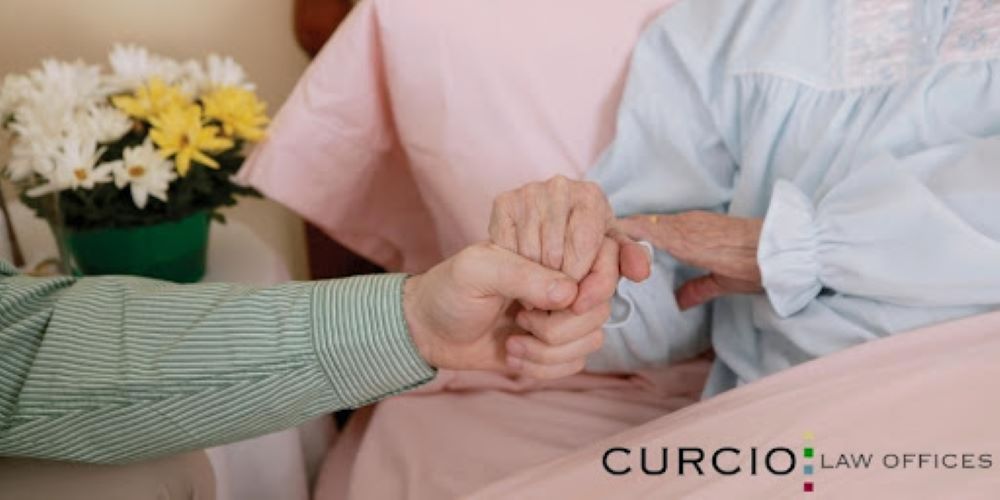Better healthcare and living conditions have increased the average life expectancy by more than 20 years over the last century. This means there has been a huge spike in the population of older generations. While many seniors live in the community, a significant number of older adults use the services of long-term care facilities. Nursing home ombudsman programs can make sure these assisted living facilities are safe and meet the needs of each resident.
A nursing home ombudsman advocates for residents of nursing homes and assisted living facilities. A long-term care ombudsman addresses complaints and educates residents and their families about their rights. They can escalate complaints and issues to higher levels when the ombudsman program can’t resolve the problem. Every state has a Long-Term Care Ombudsman Program that helps protect the rights of residents and resolve problems within nursing homes.
If you or a loved one is having issues with a residential care facility, a long-term care ombudsman can help. In some unfortunate cases, the issues can cause lasting injuries to the patient. A Chicago nursing home abuse lawyer at Curcio & Casciato can help get the justice you and your loved ones deserve. Call us today at (312) 321-1111 to explore your legal options.
What Does a Nursing Home Ombudsman Do?
The Long-Term Care Ombudsman program is run by both the Administration for Community Living and the Administration on Aging. In 2016, long-term care facilities served more than 8.3 million people. This number is only supposed to increase, with the amount doubling by 2030. The goal of nursing home ombudsmen is to protect residents. A long-term care ombudsman advocates for residents who can no longer advocate for themselves. Every ombudsman receives training for conflict resolution to handle the complaints they receive. A nursing home ombudsman can work with the staff of the long-term care facility on behalf of the resident and their family members to resolve these issues.

Nursing Home Ombudsman Services
Ombudsman services are free of charge to residents, their families and friends, and the community at large. Services provided by a state ombudsman include:
- Protecting the rights of the resident
- Making sure residents understand their rights
- Investigating elder neglect/abuse
- Educating residents and families about types of abuse
- Reporting and collecting information about neglect/abuse
- Directing families to legal aid and law enforcement after suspicion of abuse
- Training long-term care facility staff
- Providing information about Medicaid/Medicare to residents and their families
- Helping prospective residents choose a long-term care facility
- Providing information about community services
- Providing support for the development of resident and family councils
- Forming citizen organizations to end elder abuse
How an Ombudsman Can Help Improve Nursing Homes and Assisted Living Facilities
Every state has its own nursing home ombudsman program, as required by the federal Older Americans Act. The National Long-Term Care Ombudsman Program has thousands of volunteers ready to handle complaints about the quality of life within a care facility and find solutions for residents. LTC ombudsmen also tackle systemic issues within the long-term care system. Since the passing of the Nursing Home Reform Act in 1987, care facilities have been held to a rigid standard and shown significant improvement. Nursing home ombudsman programs work constantly to improve residents’ quality of care in many nursing homes. In 2018, the ombudsman program investigated almost 200,000 complaints in care facilities. The chief complaints were improper eviction, staff attitude issues, medication administration, and unmet or slow response to calls for help.

Resolve Complaints With Confidentiality
The ombudsman cannot disclose any confidential information without the consent of the resident. This means that the resident can report sexual or physical abuse to the ombudsman without fear of retaliation from the abuser.
Report Nursing Home Abuse or Nursing Home Neglect to Government Agencies
An ombudsman works with local, state, and national departments to improve the life of residents in long-term care facilities. A nursing home ombudsman reports abuse and neglect to government agencies. They do this to protect the residents and hold the staff and facility responsible. Reporting these incidents can also prevent the abuse from happening to other patients. These reports can help change the way care facilities operate.
What is the National Ombudsman Reporting System?
The National Ombudsman Reporting System collects data from every state’s ombudsman program. This data includes the number of facilities visited, the number of hours spent in each facility, and the types of complaints investigated. All this data goes into a yearly report about the most common complaints and where care facilities are lacking.
Improve Elder Care
An ombudsman program aims to improve the quality of care for each resident in a long-term care facility. The National Consumer Voice for Quality Long-Term Care works with nursing home ombudsmen to prevent abuse and protect residents’ rights. Every year, Consumer Voice uses data from ombudsmen and publishes a report on the leading issues in nursing homes. Ombudsmen visit nursing homes for routine checkups. During these visits, they can check for signs of elder abuse or neglect. They can also assist in training nursing home staff.
When Do You Need a Nursing Home Ombudsman?
No one dreams of being away from friends and family and put into a retirement home. Unfortunately, this is becoming a reality for more and more older adults in the United States. Many adult children simply can’t balance a job, taking care of their own children, and the extra burden of caring for an elderly parent. Long-term care facilities can help bridge the gap and provide around-the-clock help for elder residents. A nursing home ombudsman can provide more peace of mind knowing your elder family member has someone who can advocate for them. If you or a loved one is in a long-term care facility, you need the contact information of a local LTC ombudsman on hand. A nursing home ombudsman can help with everything from choosing a residential facility to fighting for residents’ rights.

What are Resident’s Rights?
The Nursing Home Reform Act of 1987 outlines the required services and rights of residents in long-term care facilities. This act has improved the quality of care in nursing homes all over the United States. The NHRA includes a Residents’ Bill of Rights. Nursing home residents have the right to:
- Privacy (personal privacy and privacy of information)
- Receive quality care for physical, emotional, medical, and social needs
- Live without fear of chemical or physical restraints
- Be treated with dignity
- Live without fear of abuse or neglect
- Make decisions in their care plan
- Refuse medication and treatment
- Visits from friends, family, and organizations
- Refuse visits
- Professional medical advice
- Equal care free of discrimination
- Voice complaints without fear of staff retaliation
- Take part in community activities
Older adults do not suddenly lose basic rights when they move into a long-term care facility. Many of the adults in care facilities have memory issues, which makes them more vulnerable to abuse and neglect. Having an advocate for these residents can increase their quality of life. It can also prevent malicious parties from taking advantage of the residents.

Chicago Nursing Home Abuse Lawyers
In severe cases, a family member can suffer abuse or neglect in a nursing home and have lasting injuries. Poor staff training can lead to painful bedsores and an increased risk of falls. The qualified nursing home abuse attorneys at Curcio & Casciato have over five decades of experience fighting for the abused. If your family members have suffered abuse or neglect at the hands of a care facility, you have legal options available. For more information about legal help and our services, call us today at (312) 321-1111. We offer a free legal case review to explore your options.



